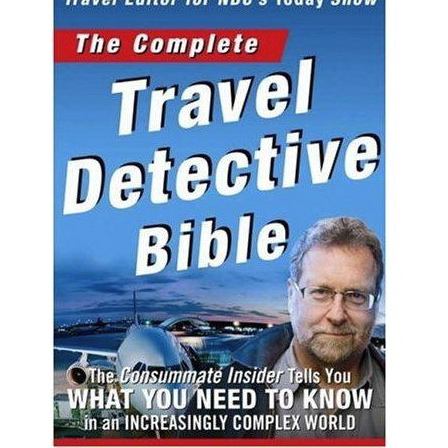 Consider this: More people are now traveling than before the year 2000. But have things gotten better? Not even close.
Consider this: More people are now traveling than before the year 2000. But have things gotten better? Not even close.
I’m convinced that the airline industry is the only one that somehow manages to stay in business by abusing its best customers. And now, much of the hotel industry is following suit. Service and hospitality are being replaced by bottom-line thinking — and the results are awful.
What can we do?
We can start by leaving the moose at home. (I’ll explain later.)
But first, the airlines should:
Abolish the asterisk. Stop insulting us by advertising a flight to Los Angeles at $184—followed by the dreaded asterisk. Read the fine print and you’ll see the fare is really a one-way fare requiring a round-trip purchase. That’s $368, not $184! Why spend so much money trying to get our attention, only to anger us?
Find an exit strategy. Here’s a novel idea that has less to do with bad weather than airline scheduling and making intelligent decisions that are passenger friendly. When a plane lands at its destination, find a way for us to get off it. From the moment we took off, you’ve known what time we’re landing. So don’t make us late by sitting on the concrete waiting for a jetway. We don’t need a jetway. We just need a way out. In the good old days, they had portable stairs. Let’s use them. We promise not to complain about the 300-foot walk to the terminal.
Drop the catchy slogans. Delta is not ready when I am. If American truly knows why I fly, then why I am always stuck in the middle seat between two sumo wrestlers? Truth in marketing would require that all airlines substitute this simple catch-all phrase: “Sit down. Shut up. We’re going.”
Establish a Geneva Convention for passengers. Flying may not be torture, but it can be awfully close. Minimum treatment standards for high-altitude, taxiway, and runway captivity would be good for customers—and would help airlines answer this (possibly rhetorical) question: Are they in the passenger service business or the human freight business?
Second, hotel operators should:
Quote the real rates. There are excise taxes, occupancy taxes, sales taxes, and the let’s-have-you-build-our-sport-stadium taxes. We need to know what we’re getting into before we get our bill.
Abolish forced mood lighting. It puts us in a bad mood. We’ve got things to do—and see. Give us a 300-watt bulb with a dimmer knob, not a 40-watt bulb with an on/off switch. We don’t really change our lifestyle when we change our location. All hotel room designers must be forced to spend at least two nights in the rooms they’ve configured before a design is approved. I don’t want to get injured by my new-age bathroom sink. I just want a sink! And remember, some of us actually like to read, maybe even work in our hotel rooms.
Stop nickel-and-diming us. More than $1 for a bottle of water from the minibar should be a prosecutable offense. Period. We’ll figure out the specific criminal chargers later.
But my fellow travelers, you aren’t off the hook either. You need to remember:
Just because it has wheels doesn’t mean it’s a carry-on. There’s a big difference between portable and transportable. People have brought automobile drive-shafts, dead grandmothers, and a stuffed moose into passenger cabins as roll-aboards. It’s just wrong. Do I need to explain further? Leave the moose at home.
Your lunch is everyone’s business. Just because airlines stopped serving food, doesn’t mean you have to bring your own. Nothing smells worse than a half-eaten bag of fried food in the seat-back pocket of the guy sitting next to you on that five-hour transcon.
Undress before you get to security. The lines are long enough. I don’t want to stand behind you while you discover whatever’s been in your pockets since 1987. Reverse your conditioning—undress before you get to the airport. Dress after you pass security.
These ideas don’t require much capital investment or great physical exertion; they’re common sense. Unfortunately, they’re also probably too much to ask.
After all, I’m writing this while sitting on a delayed La Guardia-bound flight that pushed back on time but is now stuck on the world’s longest, slow moving taxiway. Assuming we ever leave Miami, and assuming we land in New York, and assuming there’s a gate, I’ll check in to my hotel in about five hours to find a dimly lit, “cutting edge” room, a dangerous bathroom sink, and let’s not forget that $7 bottle of water on the desk.
And yet, like most of us, I’ll take the abuse and keep on traveling. What’s the alternative? We still love to travel. And we should.
This book is all about process, not product. It’s about the experience, not the destination. Hopefully, it contains the information, the secrets, the procedures to employ, as well as those to avoid, to make you better travelers.
Call me a lone holdout, but I know from experience that when it comes to travel, it’s not what the market will bear, but what the market will value. It’s not about price, but worth.
And, never forget that we’re the best arbiters of value and worth.
Happy traveling!
Read even more tips from Peter’s latest book.
Learn more about the debut of Peter’s book.
Get more information on Peter’s book tour.
Find more Travel Book Spotlights.












